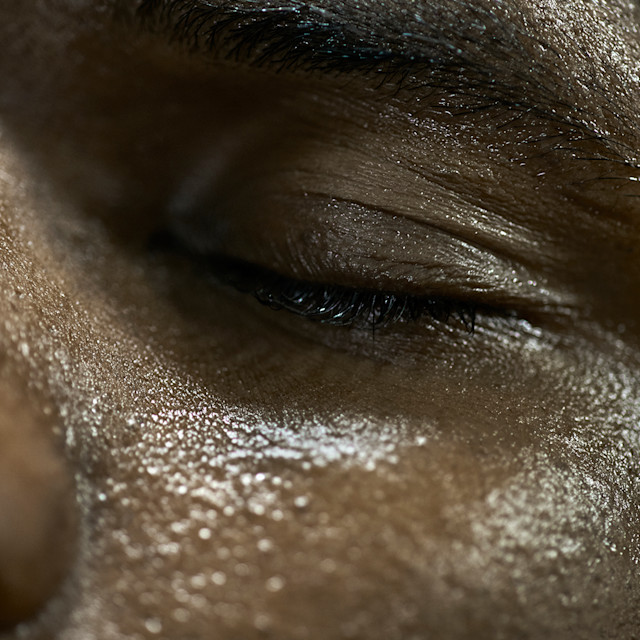Plus, learn how to use your Oura Ring to get the job done.
Published in partnership with ŌURA.
HRV is a powerful metric that provides unique insights into your body’s response to stress. If you’ve read our guide to HRV, you may be curious about how to improve HRV. However, HRV isn’t as simple as, “How high can you go?” Instead, having more consistent HRV values from day to day is a better signal of an enhanced ability to respond to daily stressors.
With that in mind, how can you improve your HRV and make it more consistent?
5 Tips to Improve Your HRV
1. Stay active
One of the most effective ways to lower your resting heart rate and improve your HRV is to stay active. Regular exercise a few times per week can improve HRV at any age and is one of the most effective, established ways to make progress for more sedentary individuals. If you’re already very active, rather than aiming for a higher HRV score, focus on incorporating HRV monitoring into your training routine and watch how your HRV consistency changes. This approach can lead to improved performance.
READ MORE: Heart Rate Recovery: Why It Matters and How to Calculate Yours
2. Sleep well.
Good sleep is just as important as exercise. Several studies have shown how sleep deprivation, or simply lower sleep quality, is associated with reduced HRV. So, especially when something like a new exercise regimen or work-related stress begins to add strain to your day — recovery becomes essential.
READ MORE: How To Get Better Sleep
3. Choose healthy foods.
Activity, sleep, and diet are the three pillars of a healthy lifestyle. What we eat and when we eat can have a significant impact on our sleep and resting physiology (heart rate and HRV). While individual needs can vary, try avoiding processed foods and late, large meals, as these have been shown to reduce HRV.
4. Breathe deeply.
Deep breathing techniques (everything from yoga, mindfulness, meditation, or biofeedback) can effectively strengthen the parasympathetic system (your “rest and digest” network), resulting in improved HRV. While putting these techniques into practice, keep in mind that your HRV is likely going to be higher during the activity itself than your nighttime values. This is especially true when breathing close to our resonant frequency, which is typically six breaths per minute.
The research is still emerging on if these daytime HRV improvements can reliably improve your resting, nighttime HRV, but it’s one of the many tools you can access easily and is definitely worth exploring.
For some, the breathwork just works. Check out this example of HRV expert Marco Altini’s data showing an improvement in weekly and monthly HRV while practicing deep breathing for up to 40 minutes a day.
READ MORE: 5 Simple Breathing Techniques for a Good Night’s Sleep
5. Practice stress management.
The previous four tips are all key to improving our HRV, but stress will still play a significant role in our lives for a variety of reasons. On days when your HRV is a bit lower than usual, try to prioritize recovery, reduce training intensity, and take extra care of yourself. These small steps can lead to improved health and performance.
READ MORE: Use HRV to Manage Stress
Using Oura
If you have an Oura Ring, there are multiple ways you can explore how your body is responding to stress and start making adjustments that can improve your HRV:
• Look for sharp increases or drops in your average nighttime HRV; it can provide clues into how your lifestyle is impacting your body.
• Look for an upward trend in your nighttime HRV trace, a sign that your body is recovering while you sleep.
• Look for lifestyle practices that encourage HRV consistency in your HRV Balance.
HRV is Highly Individual
Many of these HRV tips have worked for a variety of people. However, HRV is highly individual, so remember to always compare your HRV to your own averages and avoid comparisons to others.
As often happens when we try something new, it’s also important to experiment and see what works for you, your body, and your lifestyle. Improving our physiology takes time; each of these habits might take several weeks to build and deliver benefits, but exploration will only help you find what’s best for your health!
LEARN MORE: What is the Average HRV?
Through Equinox Circle, members will get access to an exclusive Equinox Rest and Recovery Kit, which includes an Oura Ring in select colors, an Equinox ring cover, charger, ring pouch, and a 12-month complimentary subscription. Plus, members get $60 off select rings. Learn more.
